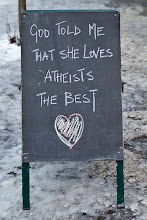

If you love history, and you are a woman, you probably have – like me – a mental list of the very very few women who are remembered. They dot through history like irregular stepping stones, and their names run through my head, a mantra of women’s worth. Because, even for someone who grew up in the last part of the twentieth century, the insult of misogynists throughout time – where are your female philosophers, your female scientists, poets, artists, mathematicians? – still has the capacity to sting. I shouldn’t have to hold names like Hypatia, Theodora, Ada Lovelace, Christine de Pizan, close to me like a safety blanket to keep out the chilly question of whether women really are capable of great things. But even now, living in a time where nearly every field of study and excellence is theoretically available to women, the litany of great women through time retains its power for me.
Maybe it’s because none of them are exactly household names, being cherished for the most part only by a few academics and the women of every generation who have attempted to trace a history of women as the intellectual equals of men. Their achievements have been erased, minimised, forgotten and ridiculed over time by succeeding eras of male scholars, haunted by the fear that the recognition of even one woman as a great mind would put a crack in the certainty that only men could or should think, reason, invent and decide. Their memory feels endangered.
Everything about the way history is recorded helps to erase our female ancestors. With not even a surname to keep with them through life, our grandmothers disappear from the edge of the family tree, subtitled with that saddest of legends: “about whom nothing is known”. Largely absent from the paperwork that forms the skeleton of “recorded” history - electoral records, tax documents, legal agreements - it is almost a cliché to say that women’s history is preserved in the organic, changeable medium of spoken, not written, tales.
But keeping alive the memory of these “great women” is where paper history and oral history meet. Where conventional sources of knowledge – books, school curricula, documentaries – fail, oral history steps in. My mother clips out and sends me the tiny articles or book reviews that she happens across that focus on women in history, an excited loop of highlighter circling the relevant few lines. If the name of a female writer or artist or film-maker or activist turns up in conversation, she will turn to me and give me a 2 minute lecture on that woman’s life and achievements, with the air of one sharing an important confidence. What’s the secret? That women have always achieved against all the odds.
All the little knowledge I hold tight about women’s lives and successes through history has come to me through other women, whether a relative telling me about her grandmother's life in the 1890s, a science teacher refusing to let Rosalind Franklin’s name be missed from our class’s study of DNA, or a female blogger writing with passion about Sojourner Truth’s campaign for equality. Accustomed to a dominant culture where they are not listened to, there is a network of tale-telling between women that passes on the stories of how our foremothers have changed the world.
"Women’s history should make up half of the plain ordinary history that we learn as we grow up."
But while these stories are precious I do not want to see them remain a secret history in this century. The lives and works of women should be printed loud and proud in textbooks, and shown large as life in art galleries and museums for everyone, both men and women, to see. Women’s history should make up half of the plain ordinary history that we learn as we grow up. So I’ve made it my resolution and my pleasure to tell the men and boys I know the same stories, to make sure my brother knows that the computer programme he uses every day traces its history to Ada Lovelace’s brainpower, to speak to my friend about the woman running a key part of the Hadron Collider he reads about so avidly. One day, I want to look into their faces as I tell them and see no flash of surprise.
ElephantsAndMiasmas


No comments:
Post a Comment